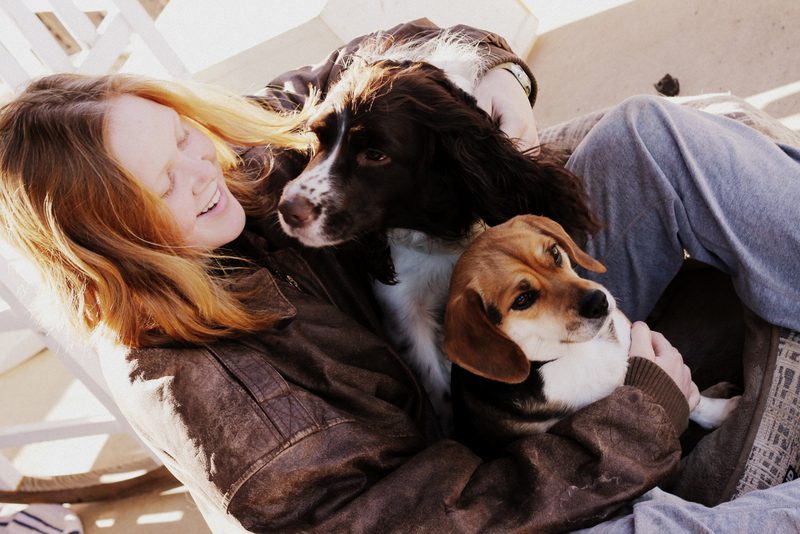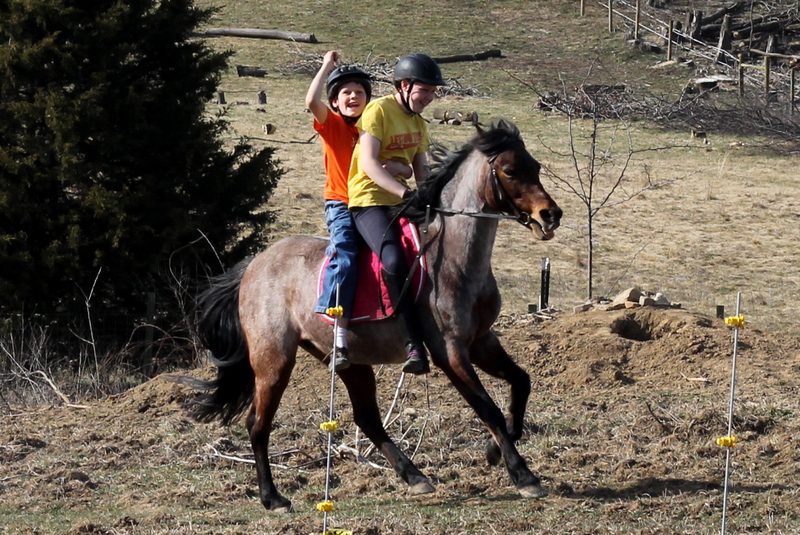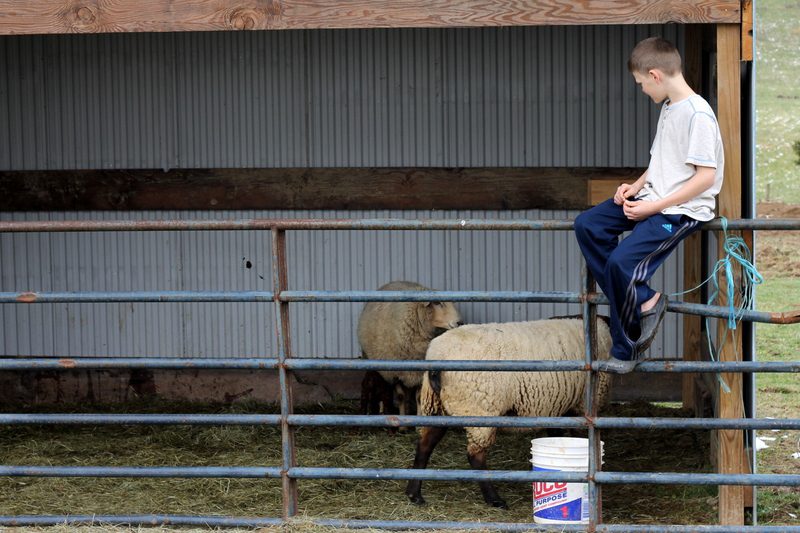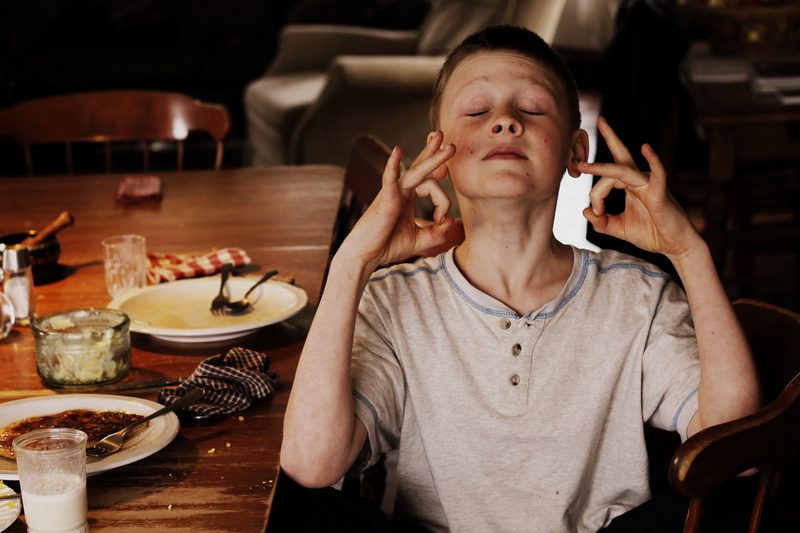Two days after Annabelle had her first-day-of-spring lambs, Jessica went into labor. She went off her feed and wandered around the pasture, standing, sitting, tossing her head, and generally looking uncomfortable. The kids set up shop at the edge of the pasture, binoculars in hand. Every now and then I’d holler at them: ANYTHING COMING OUT YET?
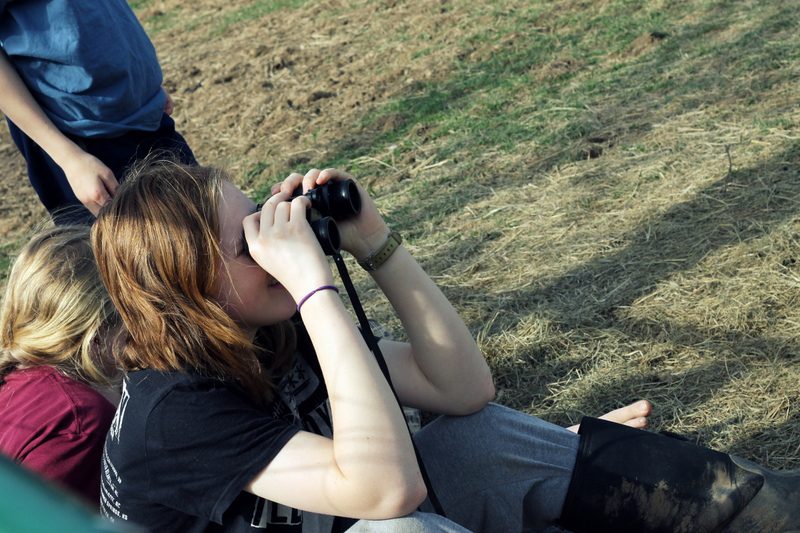
Mid-morning, we invited the neighbors down for the show. The lambs might be born in ten minutes or ten hours, I said, but you’re welcome to just come over and hang out for the day. The kids played outside for the morning. At noon, their mother joined us. After the kids ate, she and I visited at the kitchen table, keeping one eye on the window and the livestock activity in the field. Just after I set a pot of coffee on to brew, my daughter yelled that Jessica’s water had broken, which meant the lambs would most likely arrive within an hour. Thinking we had plenty of time, we moseyed out the door, but as soon as we stepped onto the deck, we were greeted with shouting: Jessica had already had a lamb! We scurried down to the field to find a teeny-tiny, sopping-wet lamb laying in a heap on the ground and Jessica pawing the ground, gearing up to deliver another.
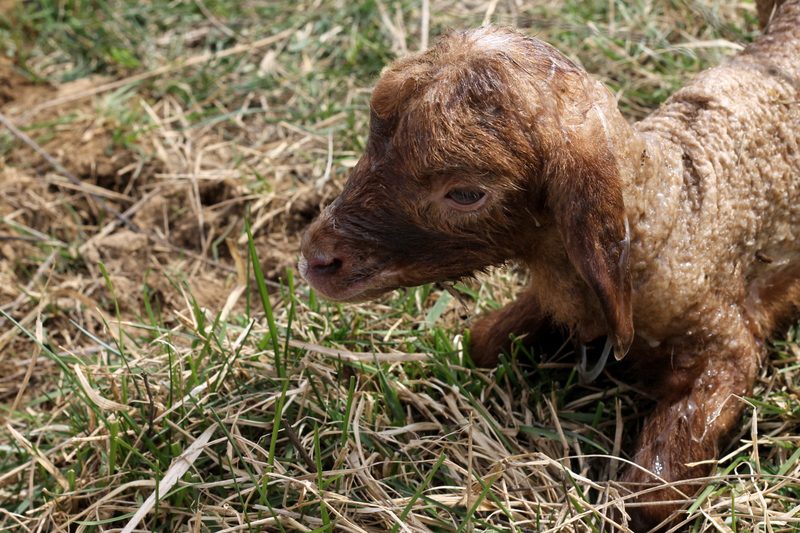
The second one took a lot longer to come out, and it was a lot bigger, too. For what seemed forever, it just stuck there, its head out and its body in. Every now and then it shook its head, making its ears flop. Just when I was ready to give my daughter the green light to assist, the lamb starting inching its way out, and finally, finally, it plopped to the ground like a casually-tossed handful of Pick-Up Sticks.
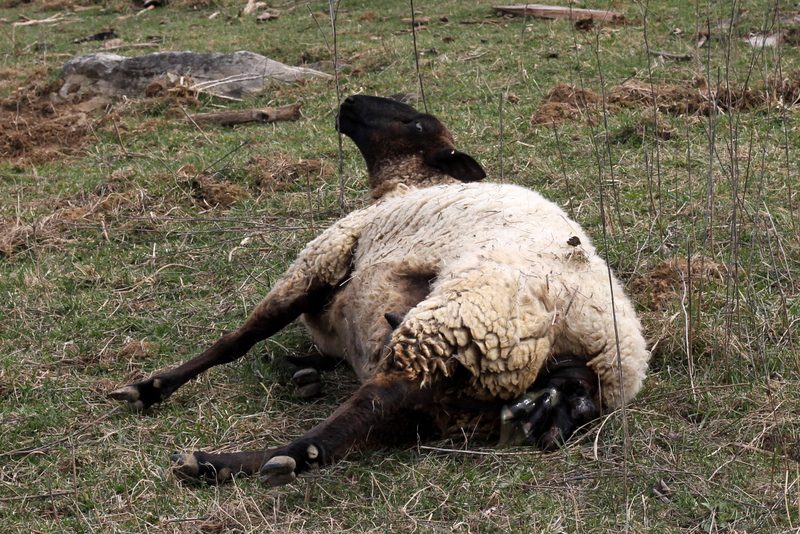
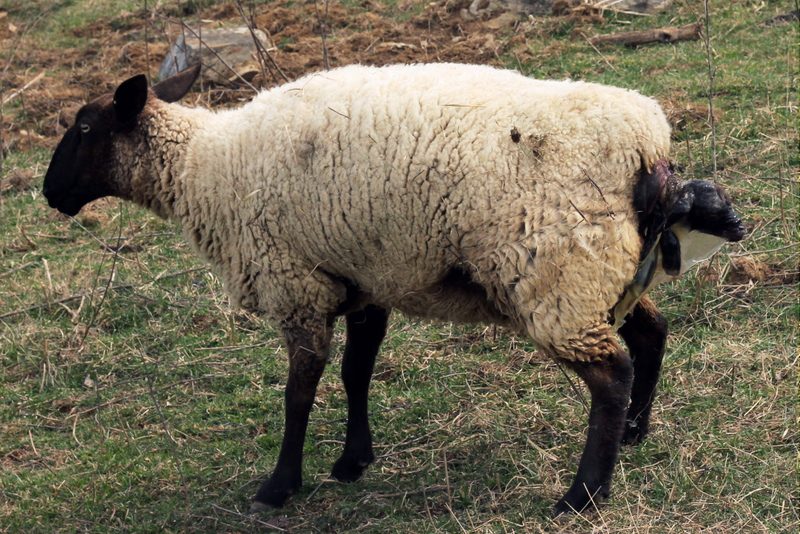

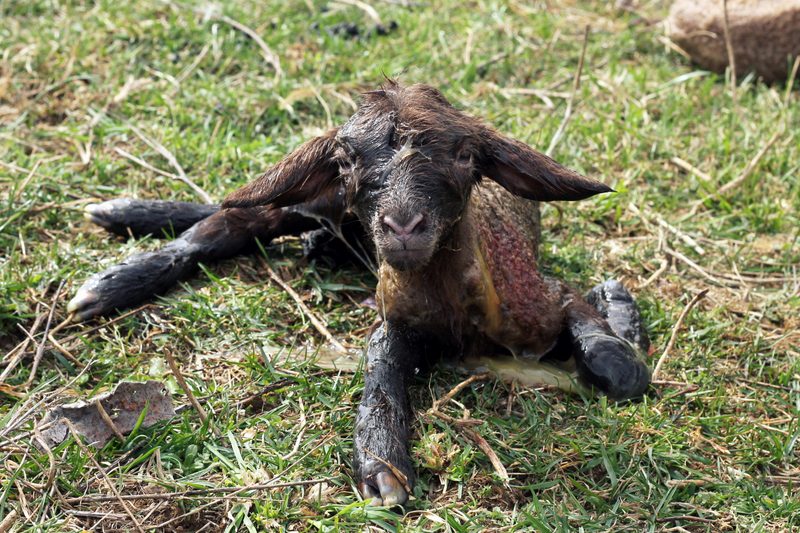
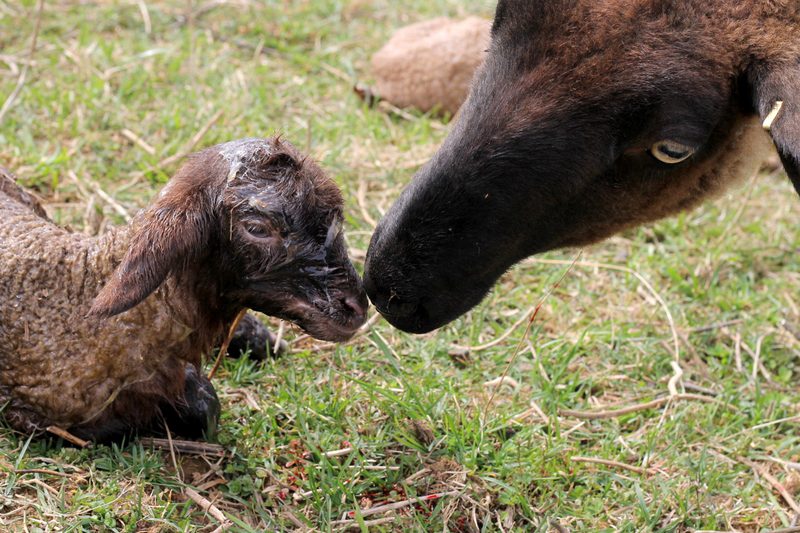
At first, Jessica was extremely attentive to each of the lambs, sucking on their ears and mouths, licking them all over, using her teeth to pull them upright by the scruff of their necks. But then she started butting the little one away, slamming it with her head and kicking at it. My daughter had to hold Jessica’s head so the lamb could nurse.

Within a few hours, it was clear that Jessica was rejecting the small lamb. My daughter went outside every two hours that first night to hold Jessica’s head so the little one could feed. The next morning we ran to the farm store to get milk replacer and a bottle nipple, just in case. That evening, my husband and daughter tied Jessica to the stable wall and left her there with the lamb for an hour. It sounded like Jessica was dying, but it sort of worked. Now she’s sometimes allowing the little one to nurse (and even one of Annabelle’s lambs occasionally helps herself to some milk). We’re hopeful that things will continue to improve, and the wee one appears to be thriving.
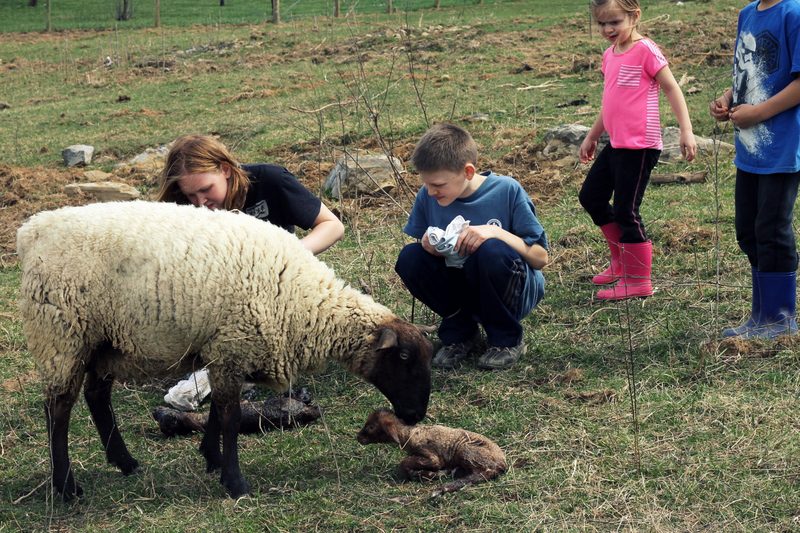

It’s interesting how different the mothers are: Annabelle, the more skittish of the two, talks constantly to her lambs while Jessica is mostly silent. All four lambs are frisky, alert, and absolutely adorable. The wee one is super bouncy and follows my daughter everywhere…even into the house.

With their gangly legs, wildly wiggling tails, and perpetually smiling mouths, I’ve decided that lambs are springtime personified (animalfied?). We’re getting such a kick out of them.
This same time, years previous: the pigpen, the quotidian (3.24.14), applied mathematics, of a moody Sunday, a list, the faces of my nieces, fatira, whoopie pies, and snickerdoodles.














